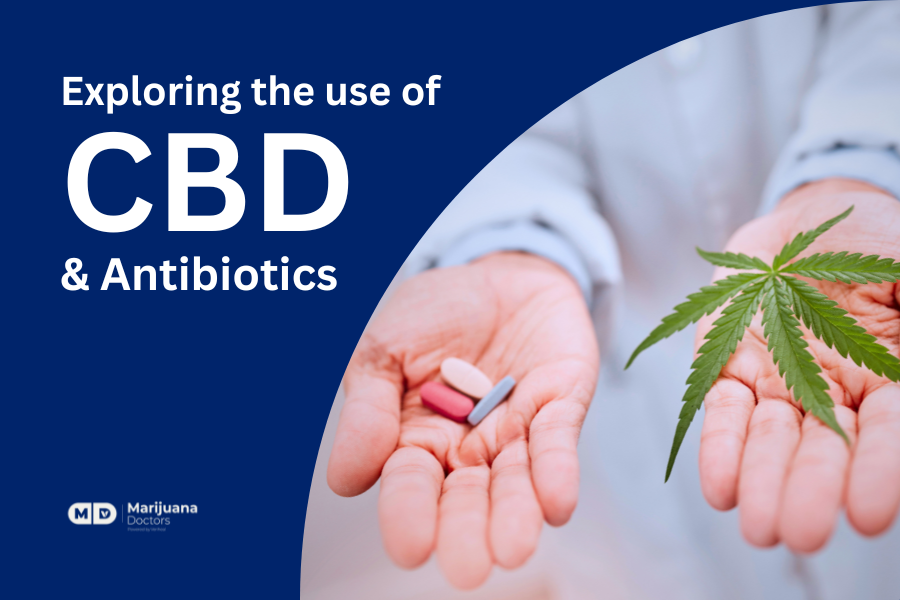The question of whether you can apply for a medical marijuana card online is a reflection of a significant shift in modern healthcare, and the answer is yes!
This trend toward online medical marijuana cards is part of a larger movement in healthcare that focuses on providing care that is convenient, personalized, and tailored to the individual’s needs. The use of telemedicine is a prime example of this, as it empowers patients to take control of their health journey from the very first step.
Telemedicine is the adoption of technology that allows patients to receive medical services remotely, through virtual platforms. This has greatly increased remote access, making it easier for patients in all regions to connect with a doctor.
The online marijuana card application process is designed for patient convenience and accessibility. It allows for a consultation with a licensed doctor from the comfort of your own home, eliminating the need for travel. This is particularly beneficial for individuals with limited mobility or those living in rural areas.
However, this convenience doesn’t come at the cost of professional standards. The process still requires a valid doctor-patient relationship. But these platforms must adhere to strict state and federal guidelines or standard protocols to ensure patient safety and data privacy.
Which States Allow Online MMJ Card Applications?
In recent times, many states have moved to a fully digital certification and application process. However, specific requirements may vary from state to state, with some states requiring in-person visits for certain conditions or initial appointments, but the trend bends toward a fully virtual experience.
What was once a limited option is now the standard for many patients seeking a medical marijuana card.
Some states that allow online MMJ card applications include:
- Arizona
- Arkansas
- California
- Colorado
- Connecticut
- Florida
- Hawaii
- Illinois
- Iowa
- Kentucky
- Maryland
- Massachusetts
- Michigan
- Minnesota
- Missouri
- Montana
- New Jersey
- New York
- Ohio
- Oklahoma
- Oregon
- Pennsylvania
- Rhode Island
- Utah
- Virginia
- West Virginia
What Documents Do I Need To Apply Online?
The primary document you’ll need is your physician’s certification. It is a formal documentation from a licensed doctor confirming that you have a qualifying medical condition that meets your state’s specific criteria for medical cannabis. This certification is often submitted directly by your doctor through a secure online portal after your virtual consultation.
The second set of essential documents is for your identity and residency. Online applications require digital proof that you are who you say you are and that you are a legal resident of the state you are applying in. This is to prevent fraud and ensure compliance with state laws. Common examples of documents accepted for this purpose include a valid state-issued driver’s license or ID card, a recent utility bill, or a lease agreement showing your name and current address. For states like Florida and Illinois, patients may often simply provide their state ID number, and the system can automatically pull their information from government databases.
Finally, most states require a recent, passport-style digital photograph. This photo will be used for your official medical marijuana card. Many state portals, such as those in West Virginia and New Jersey, have specific guidelines for the photo, requiring a plain background and a clear, unfiltered image to ensure it meets official standards.
Having these three important documents—your physician’s certification, proof of identity and residency, and a digital photo—ready for upload will ensure a smooth and efficient application.
How Do Online Medical Marijuana Evaluations Work?
A medical marijuana evaluation is a private consultation with a healthcare professional that you can complete from the comfort of your home. It begins with a secure video call with a state-licensed doctor who can recommend medical marijuana. During the 10–15-minute appointment, the doctor reviews your medical records, asks about your health history, symptoms, and past treatments, and explains how medical marijuana may help manage your condition. They also determine whether you meet your state’s qualifying criteria.
If you qualify, the doctor issues a formal certification or recommendation and often submits it directly to your state’s patient registry.
How Much Does It Cost To Apply Online?
The cost of an online medical marijuana card application is generally broken down into two main components: the state application fee and the doctor’s consultation fee.
The state application fee is a fixed cost paid directly to the state’s health or cannabis department. This fee covers the administrative costs of processing your application, running background checks (if applicable), and issuing your physical or digital ID card. This fee is often non-refundable, regardless of whether your application is approved. As of 2025, these fees vary widely from state to state. For instance, Oklahoma’s patient license application is $100, while Oregon’s is a higher $200. Conversely, some states offer reduced fees for veterans, low-income residents, or those on programs like Medicaid.
The second part of the cost is the doctor’s consultation fee. This fee is paid to the online service or a private practice, and it covers the cost of the virtual evaluation and the physician’s time. The cost for online consultations can range from as low as $39 to as high as $199, depending on the state and the service.
The total cost to get your card online is a combination of the state fee and the doctor’s fee.
How Long Does It Take to Get an MMJ Card Online?
Just like the cost, the timeline is divided into two main phases: the doctor’s certification and the state’s processing time.
The first phase, the doctor’s certification, is often the fastest part of the process. In many states, a patient can have a virtual consultation with a certified doctor and receive their recommendation within minutes.
However, for the second phase, after your doctor submits the certification and you complete your application on the state’s portal, the state health or cannabis authority must review and approve it. The speed of this process is entirely dependent on the state’s regulations and current application volume.
For example, some states have specific, quick turnaround times, while others could take weeks. New Mexico processes online applications within 5 business days, Oklahoma processes applications within 14 business days, while West Virginia takes up to 30 days to review applications.
Once approved, the final step is receiving your card. Many states, including Illinois and New York, now issue a temporary digital card via email that can be used immediately at dispensaries while you wait for a physical card to arrive in the mail. This eliminates any waiting period and gives patients immediate access to their medication.
In essence, the entire process may take a few weeks in some states, but the online model brings a much faster and more efficient system for patients.
READ: Worry-Free Way to Get Your Medical Card Online with Marijuana Doctors
Frequently Asked Questions
How Much Does An Online Medical Marijuana Card Cost In [State]?
The cost of an online medical marijuana card consists of two fees — a state application fee and a doctor’s consultation fee. The state fee is a fixed cost ranging from $25 to over $200, depending on the state, while the doctor’s consultation fee generally ranges from $39 to $199. The total cost is the sum of these two separate charges.
What Conditions Qualify For An Online Medical Marijuana Card?
The conditions that qualify for an online medical marijuana card may vary by state, but some of the commonly accepted conditions include chronic pain, cancer, post-traumatic stress disorder (PTSD), epilepsy, and multiple sclerosis (MS). Many states also include conditions that cause severe and persistent symptoms such as muscle spasms, wasting syndrome, or intractable nausea.
Can You Get a Medical Marijuana Card Online Instantly?
Getting a medical marijuana card online is not typically an instant process from start to finish. The doctor’s consultation can be very fast; however, receiving the official card depends on the state’s processing time, which can range from a few minutes for a digital card to several weeks for a physical one to arrive by mail.
Is Telehealth Legal For Medical Marijuana Evaluations?
Yes, in the majority of states with a medical marijuana program, telehealth is legal and has become the standard for patient evaluations. However, specific regulations may vary by state, with some requiring an in-person visit for the initial appointment before allowing virtual renewals.
Do All States Accept Online MMJ Card Applications?
No, not all states accept online MMJ card applications. However, a vast majority of states with medical marijuana programs have adopted telemedicine for patient evaluations, but a few still require an in-person visit for the initial certification.
How Do I Renew My Medical Marijuana Card Online?
Renewing a medical marijuana card online involves a brief telehealth re-evaluation with a licensed physician, who then electronically submits a new certification to the state. After the patient pays the renewal fee online, the state processes the new card, which can often be issued digitally for immediate use.
What’s the Difference Between Online and In-Person MMJ Evaluations?
The difference between online and in-person medical marijuana evaluations lies in convenience, cost, and access. Online evaluations are generally faster, more affordable, and more accessible, as they eliminate travel time, wait times in a clinic, and the need for a physical office visit. In-person evaluations, while still an option in many places, may be necessary in states with more restrictive laws or for patients who prefer a traditional, face-to-face consultation.






